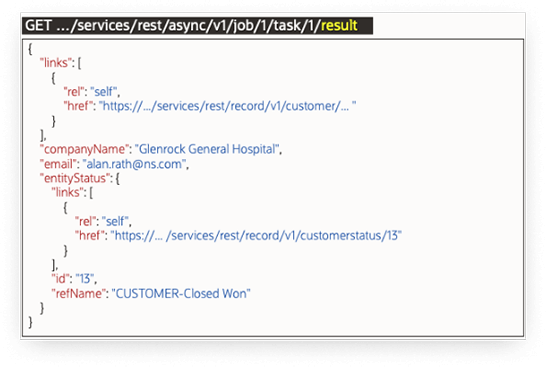Industry standards-based integration
What is NetSuite SuiteCloud Platform Integration?
NetSuite SuiteCloud Platform Integration uses industry standards for building reliable and scalable integrations that extend NetSuite into any business process, and securely exchange data from your NetSuite account with on-premises applications and cloud-native environments. Whether your architecture calls for direct-to-API integration using REST or SOAP web services or you have an existing investment in an integration middleware product, SuiteCloud paves the way to securely connect NetSuite business data with virtually any external system or third-party application.

Connect to Data the Way You Want
SuiteCloud data integration technologies adapt to how your application ecosystem is designed, not the other way around. Achieve your integration objectives by leveraging standard interfaces and data formats and commonly used ISV applications including tax, vendor management and hundreds of others, all certified to work with NetSuite.
The flexibility that NetSuite provides us with scripting and all the scripting objects is huge. Anything can be a button push and most anything can be automated.
Learn How ERP Can Streamline Your Business
Free Product Tour(opens in new tab)
NetSuite SuiteCloud Platform Integration Benefits
NetSuite SuiteCloud Platform Integration Features
SuiteCloud provides a comprehensive set of industry-standards-based integration solutions that support the secure exchange of data between NetSuite Cloud ERP and the other core systems you rely on to run your business.
SuiteTalk REST Web Services
NetSuite business objects are programmatically accessible as REST resources in a standard JSON format that exposes CRUD operations, business logic, high-performance query features such as SuiteQL and an OpenAPI 3.0 definition that provides rich object metadata.
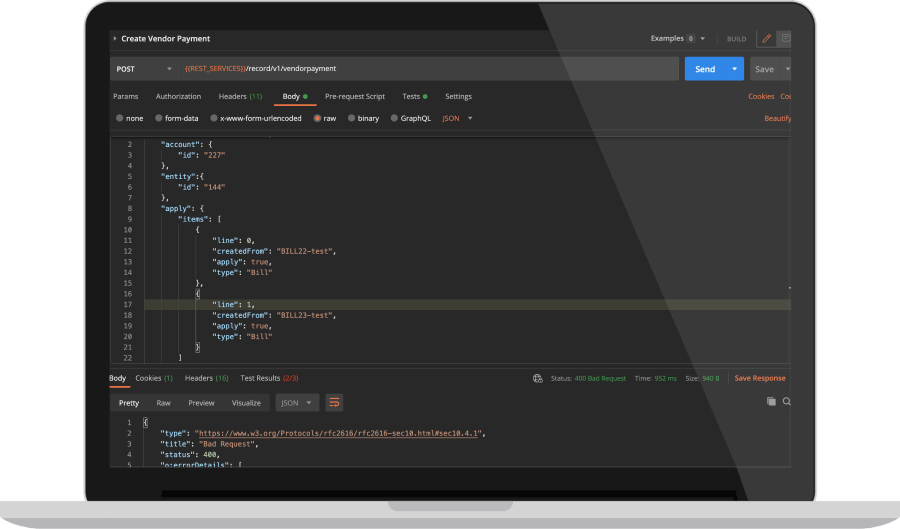
SuiteTalk SOAP Web Services
NetSuite data and business processes are available to developers as business objects over standard SOAP XML interfaces supporting a rich set of asynchronous CRUD operations that can be called by any standard programming language.
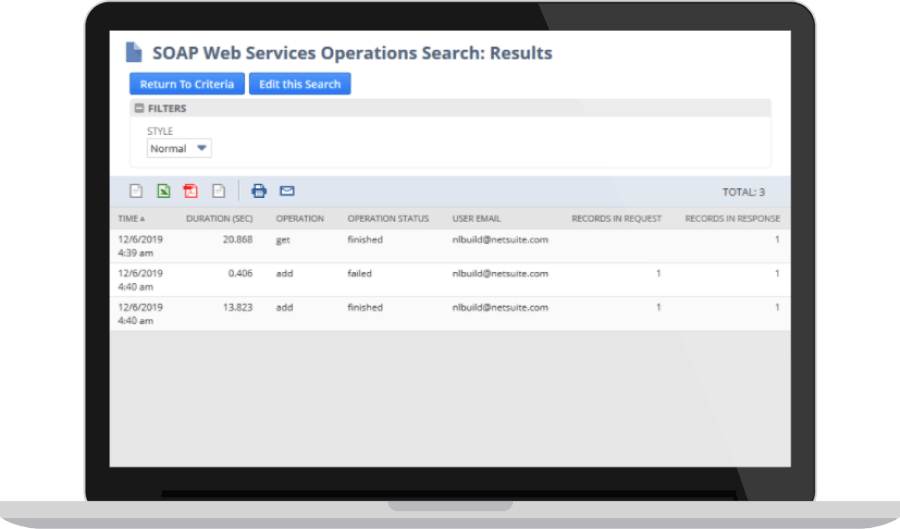
CSV File Import
SuiteCloud provides an easy-to-use yet comprehensive toolset for both developers and business users to consume CSV file-formatted data from external sources. The CSV file import toolset automates common tasks like job scheduling and includes a visual field-mapping assistant.
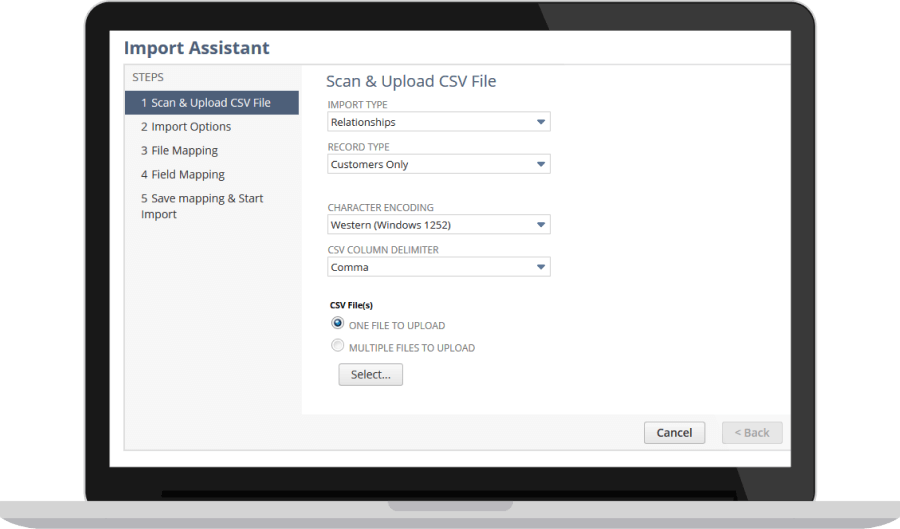
High-Volume Data Pipeline
SuiteAnalytics Connect efficiently provisions NetSuite data to external systems such as in-house BI tools or big data repositories to programmatically transfer data at scale over standard ODBC, JDBC and .NET interfaces.
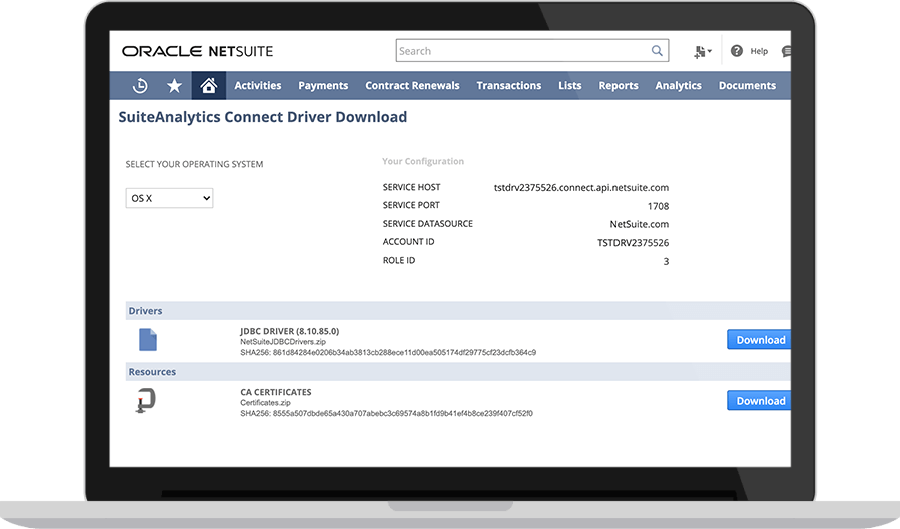
REST API Browser
NetSuite enables developers to visually inspect the full range of capabilities provided by the REST web services Record API. Gather essential information about record properties, schema definitions, request and response parameters and much more.
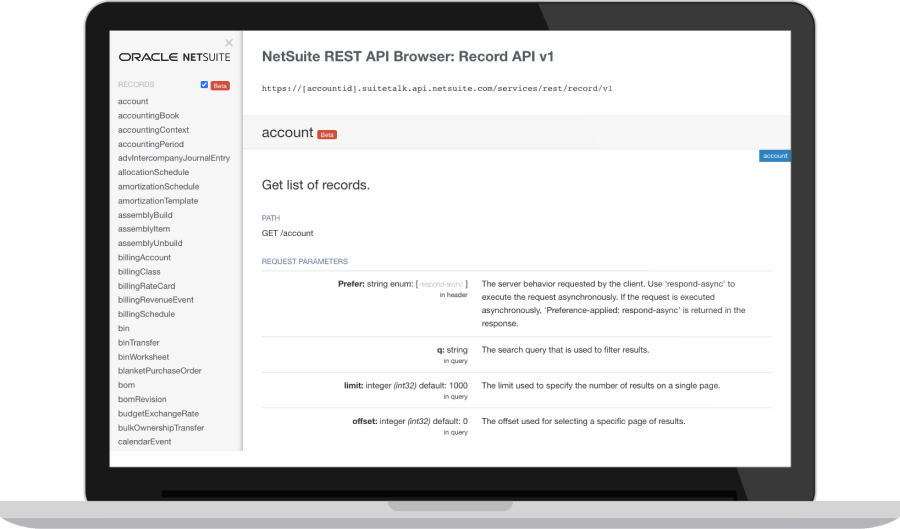
Custom REST Endpoints
Developers can create their own custom REST endpoints to integrate with NetSuite using a secure, lightweight, script-based approach with standard JSON-formatted data.
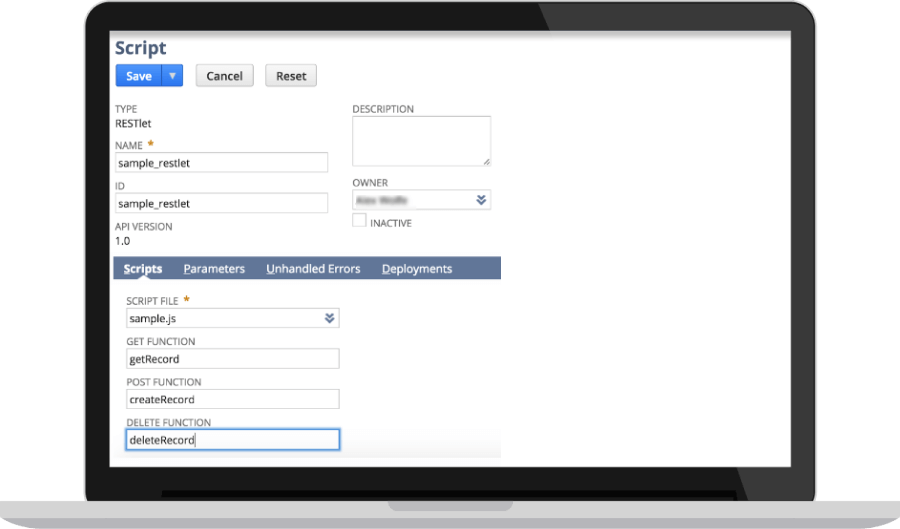
Resources

Data Sheets
Access specifications, features and benefits of the NetSuite SuiteCloud Platform.

Guides & Blogs
Go deep into topics around the NetSuite SuiteCloud Platform.
- NetSuite 2021 Release 2 Adds Support for New Code Editor, Generally Available REST Services, Updated SuiteScript API (Blog)
- NetSuite 2021 Release 1 Provides Improved Localisation Capabilities, REST Monitoring and Workbook Features for SuiteCloud Platform (Blog)
- Create Customised and Attractive PDF and HTML NetSuite Documents in Any Language (Blog)
- SuiteCloud Customisation Manager Simplifies Standard and Custom Record Management (Blog)
